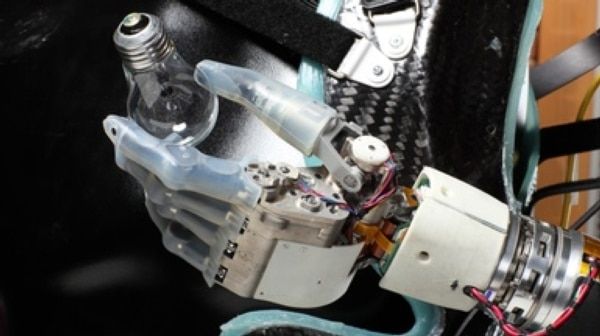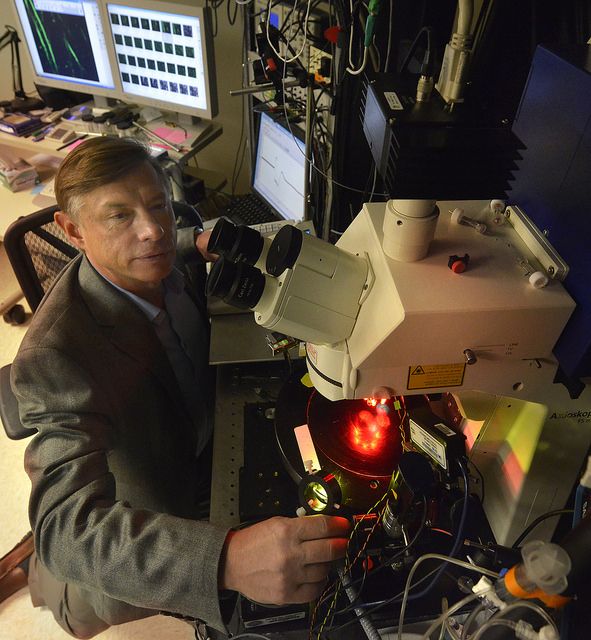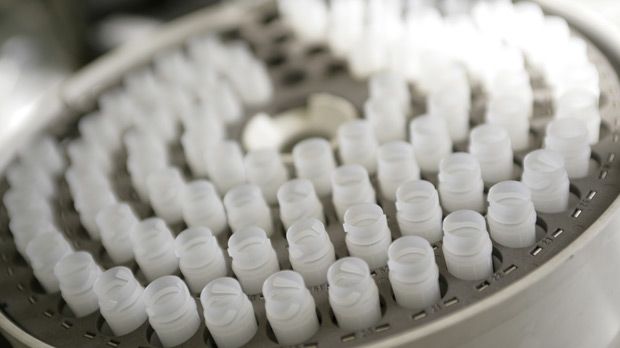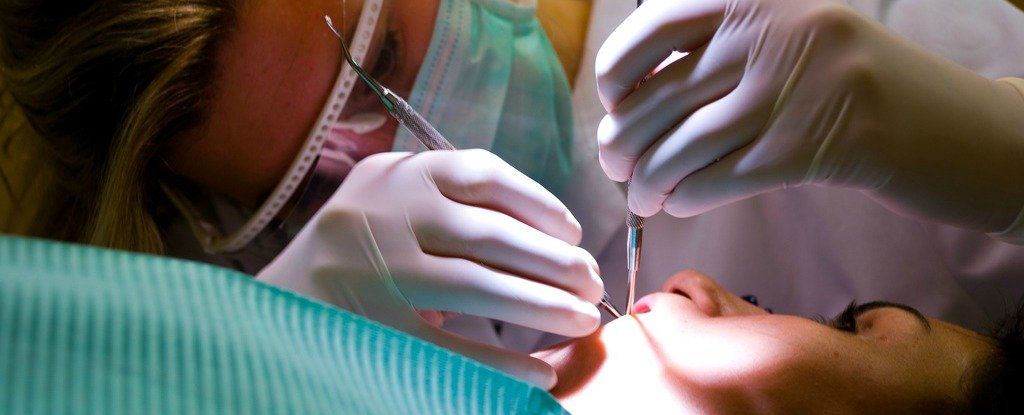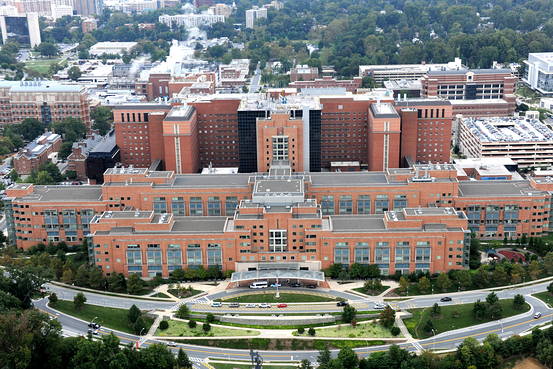Archive for the ‘biotech/medical’ category: Page 2482
Jan 9, 2017
The Army is Testing Genetically Engineered Spider Silk for Body Armor
Posted by Klaus Baldauf in categories: biotech/medical, genetics
Inserting spider DNA into silkworms yields a tough fabric that’s far more flexible than Kevlar.
Spider silk is one of nature’s toughest substances, similar in strength to the Kevlar plastic found in bulletproof vests but much more flexible. Kraig Biocraft, a company out of Ann Arbor, Michigan, genetically altered silkworms to produce a fiber that’s similar to pure spider silk. Today, they announced an Army contract to test this so-called Dragon Silk for possible use in body armor.
There’s a reason that silk from worms is cheap but you can’t buy pajamas made from spider fabric: spiders are territorial and cannibalistic, which makes farming them for fabric production almost exorbitant.
Continue reading “The Army is Testing Genetically Engineered Spider Silk for Body Armor” »
Jan 9, 2017
DARPA’s Biotech Chief Says 2017 Will “Blow Our Minds”
Posted by Dan Kummer in categories: biotech/medical, military
The Pentagon’s research division is betting its high-risk, high-reward programs will change medicine.
- By Dina Fine Maron on January 9, 2017
Jan 9, 2017
Scientists Created Tiny Bio Bot That Could Deliver Drugs From Under the skin
Posted by Karen Hurst in categories: biotech/medical, robotics/AI
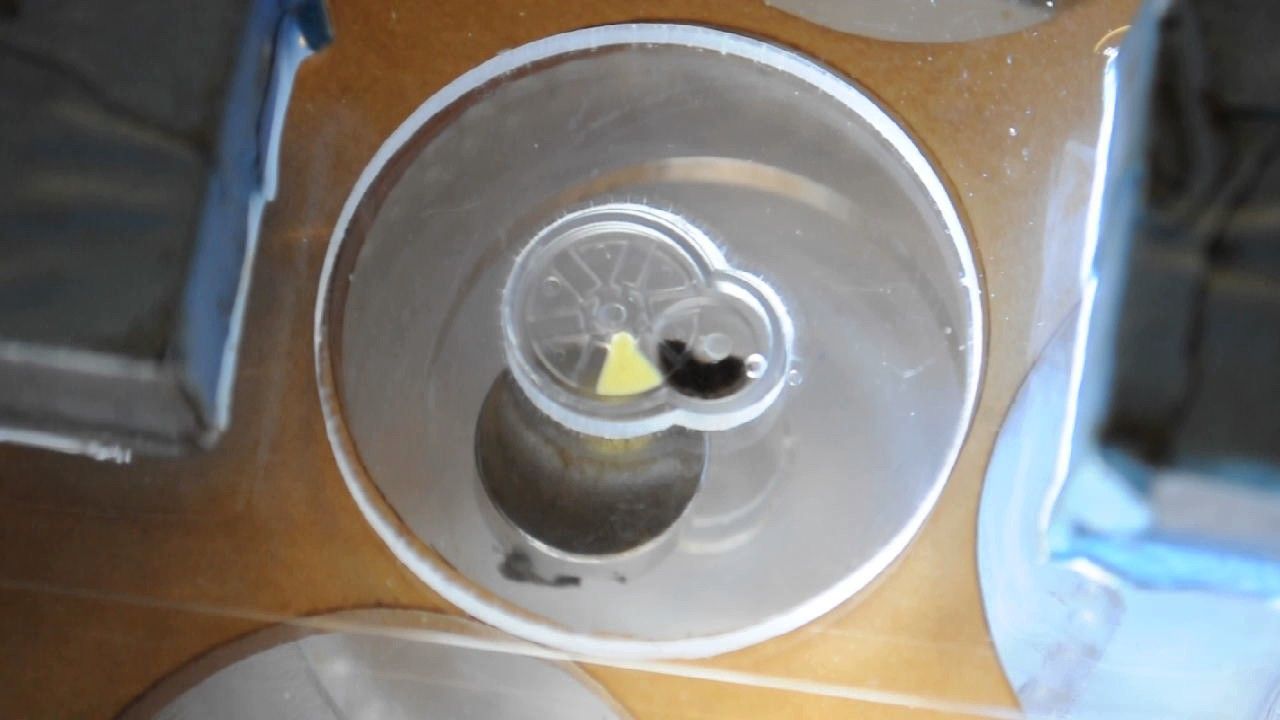
Cannot wait to see the day that when we think of tech companies that we think of Microbio, or Applgen, AlphaBio, etc. When Bio/ Medical is so intertwine with tech that the need for devices are the past; is a great day for me.
A new kind of tiny robot that can heal cancer.
Continue reading “Scientists Created Tiny Bio Bot That Could Deliver Drugs From Under the skin” »
Jan 9, 2017
Brain cell powerhouses appear good treatment target for stroke, TBI recovery
Posted by Karen Hurst in categories: biotech/medical, neuroscience
Cell powerhouses are typically long and lean, but with brain injury such as stroke or trauma, they can quickly become bloated and dysfunctional, say scientists who documented the phenomena in real time for the first time in a living brain.
The scientists also found that without giving these mitochondria anything but time, they often resume their usual healthy shape once blood and oxygen were restored to mild or moderately damaged tissue, said Dr. Sergei Kirov, neuroscientist in the Department of Neurosurgery at the Medical College of Georgia at Augusta University.
“We believe this is good evidence that mitochondria can recover their normal form following brief periods of ischemia from stroke or trauma and that drugs that enhance their recovery may improve overall recovery from these sorts of brain injuries,” Kirov said.
Continue reading “Brain cell powerhouses appear good treatment target for stroke, TBI recovery” »
Jan 9, 2017
Researchers reveal how cancer cells cope with genetic chaos
Posted by Karen Hurst in categories: biotech/medical, genetics
Another difference between normal and abnormal cells — cancer cells can continue to grow despite damage to cell structures and changes in the number of chromosomes.
Scientists have uncovered how tumours are able to grow despite significant damage to the structure and number of their chromosomes — the storage units of DNA — according to two new studies published in Cancer Cell and Cancer Discovery today.
“We hope that understanding these mechanisms will allow us to limit drug resistance and improve the efficacy of cancer therapies.” - Professor Charles Swanton
Continue reading “Researchers reveal how cancer cells cope with genetic chaos” »
Jan 9, 2017
Scientists Have Found a Drug That Regenerates Teeth, and It Could Reduce the Need for Fillings
Posted by Shane Hinshaw in categories: biotech/medical, materials
Researchers have identified a drug that can regenerate teeth from the inside out, possibly reducing the need for artificial fillings.
The drug was previously used in Alzheimer’s clinical trials, and it now appears to improve the tooth’s natural ability to heal itself. It works by activating stem cells inside the tooth’s pulp centre, prompting the damaged area to regenerate the hard dentin material that makes up the majority of a tooth.
“The simplicity of our approach makes it ideal as a clinical dental product for the natural treatment of large cavities, by providing both pulp protection and restoring dentine,” said lead author Paul Sharpe from King’s College London.
Jan 9, 2017
Calorie Restriction as a Means to Improve Surgical Outcomes
Posted by Steve Hill in categories: biotech/medical, food, health, life extension
More data for caloric restriction and health benefits.
The long-term response to calorie restriction has long been of interest to the aging research community, and particularly in the past few decades as the tools of biotechnology allowed for a more detailed analysis of the metabolic changes that accompany a reduced calorie intake. A restricted diet extends healthy life spans in near all species tested to date, though to a much greater extent in short-lived species than in long-lived species such as our own. Considerable effort is presently devoted to the development of drugs that can replicate some fraction of calorie restriction — more effort than is merited in my opinion, given that the optimal result for extension of human life span achieved via calorie restriction mimetics will be both hard to achieve safely and very limited in comparison to the gains possible through rejuvenation therapies after the SENS model. Repairing damage within the existing system should be expected to outdo attempts to change the system in order to slow the accumulation of damage, in both efficiency and size of result.
Not everyone is interested in the long term, however. The short term health benefits of calorie restriction appear quickly and are surprisingly similar in mice and humans, given that calorie restriction in mice results in significantly extended life and calorie restriction in humans does not. The beneficial adjustments to metabolism and organ function are for the most part larger and more reliable than similar gains presently achievable through forms of medicine. That is more a case of medical science having a long way to go yet than calorie restriction being wondrous, however. Still, the short term benefits are coming to the attention to wider audience within the research and medical community.
Continue reading “Calorie Restriction as a Means to Improve Surgical Outcomes” »
Jan 9, 2017
Don’t Thank Big Government for Medical Breakthroughs
Posted by Steve Hill in categories: biotech/medical, economics, government, life extension
Grassroots funding of fundamental science and private enterprize will lead the way in rejuvenation biotechnology not the traditional funding sources from Government which are shrinking every year.
It is important to understand that innovation and progress is unlikely to come from the Government and the traditional grant system which is shrinking every year. Rejuvenation biotechnology will likely be funded with a mix of fundraising for fundamental breakthrough technologies followed by private enterprize taking discoveries to market. This is why supporting science is critcial as relying on the Government to innovate and drive progress is unlikely to yield results anytime soon.
“Today, researchers compete for government grants at increasingly shorter intervals and with diminishing chances of success: Less than 1 in 5 grant applications succeeds. This inhibits risk taking.
Continue reading “Don’t Thank Big Government for Medical Breakthroughs” »
Jan 9, 2017
How CRISPR gene editing puts scientists in the driver’s seat of evolution
Posted by Steve Hill in categories: bioengineering, biotech/medical, evolution
CRISPR can help us end many diseases and guide evolution and is probably one of the most powerful tools we have recently added to our toolkit.
Imagine you could edit a mouse’s genes to be resistant to Lyme Disease. The mouse would breed and evolution would take its course, leading to the extinction of the disease. That’s the vision for scientists developing CRISPR, technology that allows scientists to rewrite the code of life. William Brangham talks to Michael Specter who wrote about CRISPR for The New Yorker.


